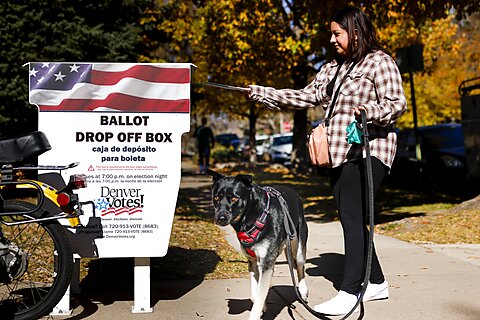Number three in our series of occasional roundups on election law and policy:
- “Misinformation spreads after 750,000 names removed from North Carolina voter rolls. Here are the facts.” Good examination by the Raleigh News and Observer of typical viral claims that catastrophize about routine list maintenance as if it were some sort of voter suppression plot. And: “Decentralization is a security feature of our system,” interview with election expert David Becker;
- This week, Thursday, Oct. 3 at noon Eastern, Cato online book forum with John Samples of Cato and former White House counsel Bob Bauer about Bauer’s new book The Unraveling: Reflections on Politics Without Ethics and Democracy in Crisis. In-person or remote, register and watch here;
- As with gerrymandering and turnout, former cases of partisan advantage often fade or reverse as the wheel turns: “Republicans’ Electoral College Edge, Once Seen as Ironclad, Looks to Be Fading” [Nate Cohn, New York Times; more on the Electoral College];
- New search engine optimization technique for election season: threaten to prosecute leading search engine under nonexistent federal laws for not making your results more flattering;
- Derek Muller counters certain doomsayers: no, the presidential election is not going to be thrown into the House unless either 1) there is an electoral vote tie or 2) some electoral votes are cast for third candidates. With a followup;
- Four things that can all be true: motor-voter arrangements in Oregon and elsewhere are prone to data entry errors, often arising from flawed online-form design; there’s no good evidence those flaws are purposeful; live election professionals may be better at conducting registrations than are state agencies with missions unrelated to elections; and if the total number of wrong ballots cast was fewer than ten, then Oregon’s was a rather lame conspiracy.

